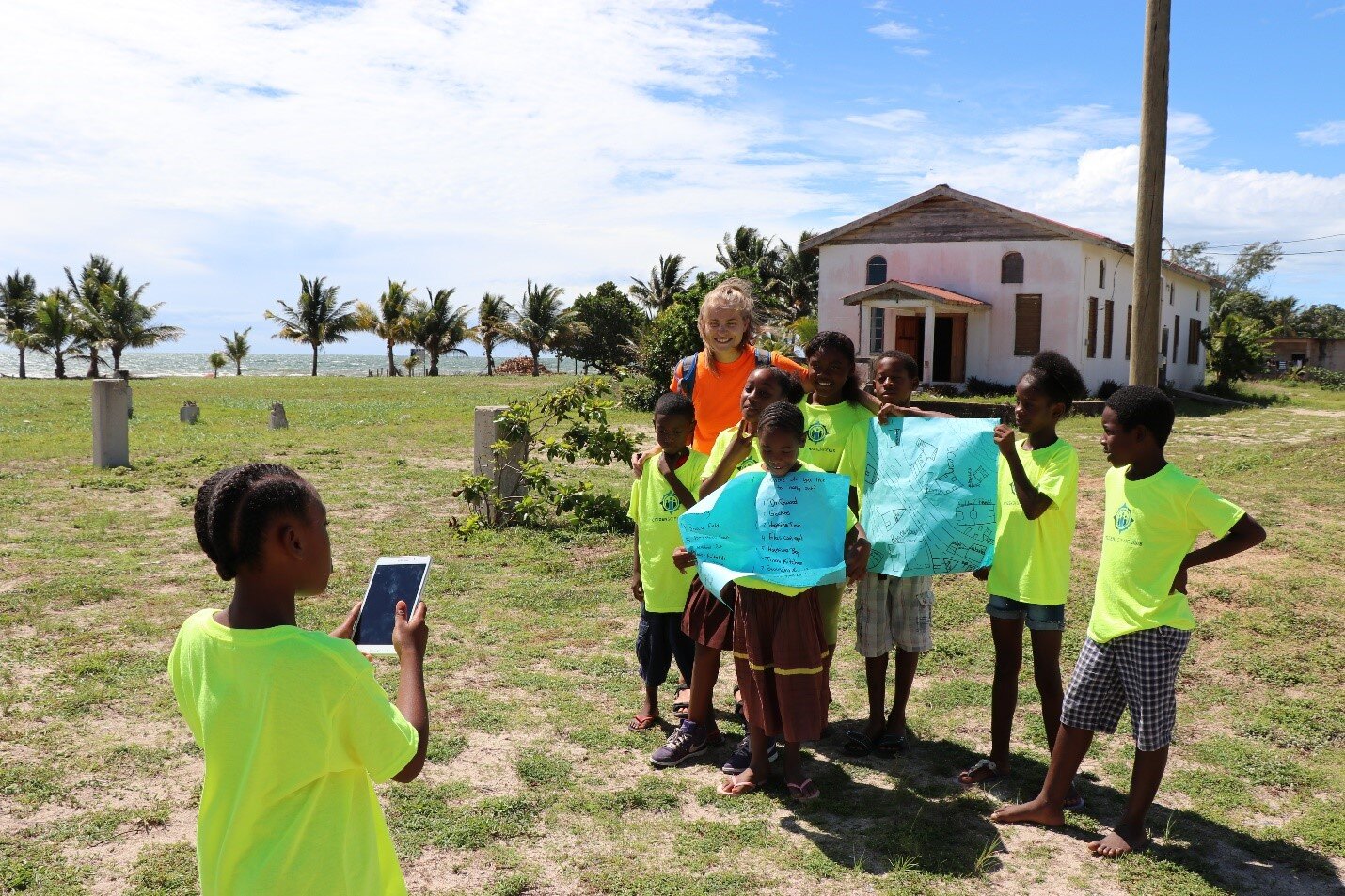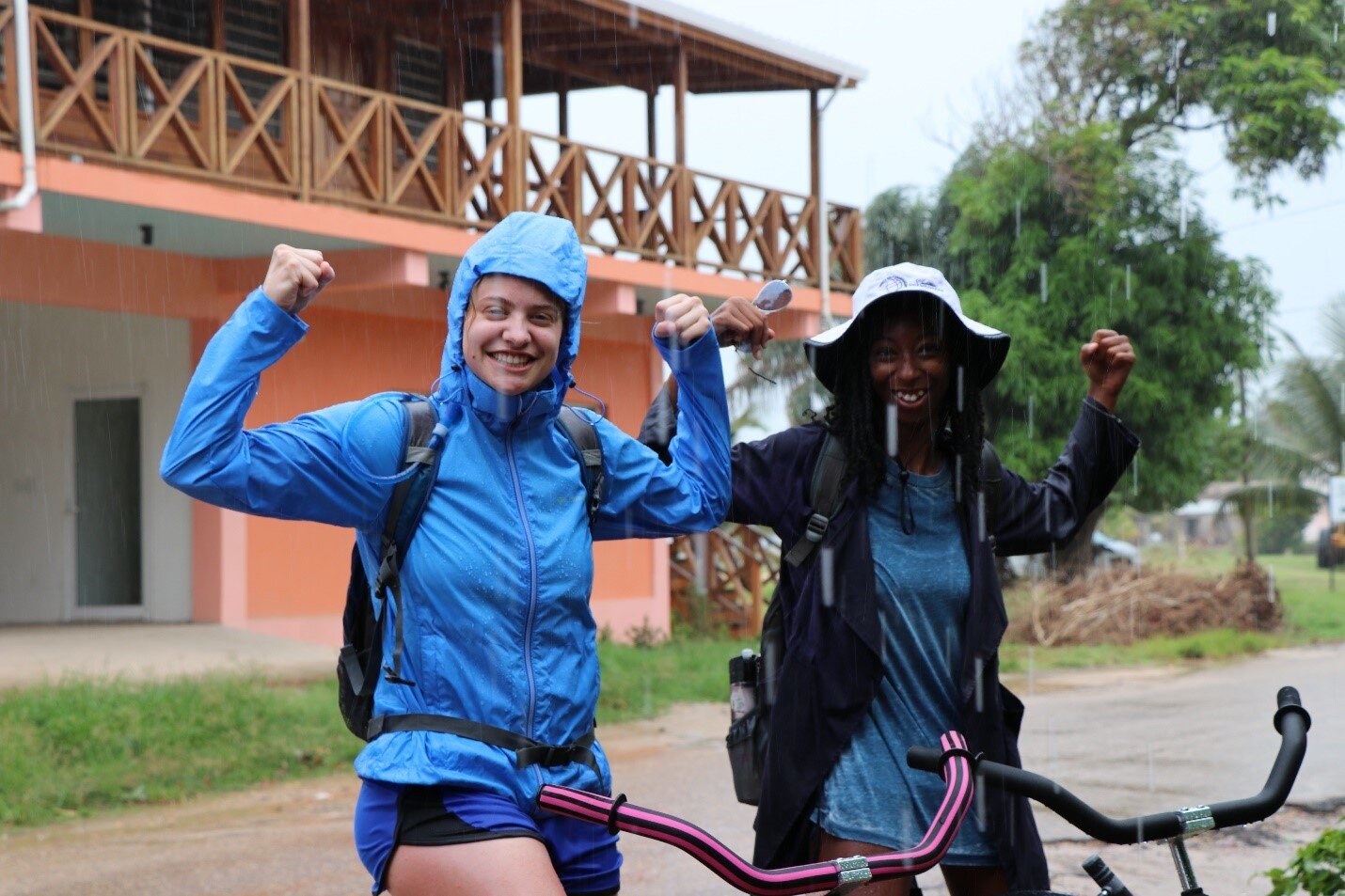Bringing People, Science, and Place Together in Undergraduate Research
The third in our series of student blog posts from our research in Belize. This time we hear from Kate Brandt, now a PhD student at UNC-Chapel Hill. Kate was one of our NSF REU Scholars in 2017, and a NSF REU staff member in 2018. People, science, and place had always appealed to my intellectual interests, but I could never quite figure out how I would be able to bring these three passions together to pursue a fulfilling career advancing the progress of all three equally. As an undergrad, I had many opportunities to participate in research projects that spanned ecology, urban planning, and geography. The outcomes in each of these projects tended to study the well being of the environment or people separately, but I was more interested in how places (built and natural) and human processes could inform each other.When I was selected to be a part of the Citizen Science GIS team in Belize during the summer of 2017, I was absolutely thrilled that I would be able to learn from a community and work with them to ask questions about how people and nature interact. I was fortunate to be able to share what I had learned in my classes and previous experiences about research and GIS with the people of Hopkins to ask important questions about how flooding and other natural hazards affected their community. This was an extremely formative experience for my academic career and reminded me of the power in prioritizing local knowledge in studying the environment. My experiences in this project shaped my ideologies as a leader, researcher, and person and reaffirmed my passion for environmental research with people at the center of the process.Working with the community and on a team of interdisciplinary researchers inspired my interest in pursuing a career in academia. I am now continuing my studies as a PhD student in Geography, continuing to explore how environments and populations affect each other in varied ways in different geographic contexts. I am so grateful that I was able to participate in the Belize REU as a student and staff member. I was able to pass my knowledge on to a new cohort of students with their own passions. Connecting with a community thousands of miles away and sharing similar concerns for the environment reminded me of the commonalities between people from different places. These formative experiences provided me the opportunity to grow and built a strong foundation for my character as a collaborative scholar, and I look forward to applying the lessons I learned in Belize to future projects and always remembering to keep people at the center of each step in the research process. Teaching the Hopkins youth about GIS and mapping was one of my favorite parts of community engagement both summers.
Teaching the Hopkins youth about GIS and mapping was one of my favorite parts of community engagement both summers.  My teammate, Julia, and I had fun toughing out fieldwork in the rain! Fieldwork, especially when it involves mapping with the community, is one of my favorite parts of the research process.
My teammate, Julia, and I had fun toughing out fieldwork in the rain! Fieldwork, especially when it involves mapping with the community, is one of my favorite parts of the research process.
